- Clone
- G077F6 (See other available formats)
- Regulatory Status
- RUO
- Other Names
- IL-4 receptor α subunit
- Isotype
- Mouse IgG2a, κ
- Ave. Rating
- Submit a Review
- Product Citations
- publications
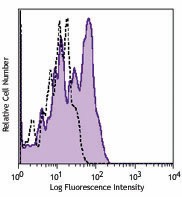
-

Human peripheral blood lymphocytes were stained with CD19 FITC and CD124 (clone G077F6) APC (filled histogram) or mouse IgG2a, κ isotype control APC (dashed histogram). The data was analyzed by gating on CD19-positive cells.
| Cat # | Size | Price | Quantity Check Availability | Save | ||
|---|---|---|---|---|---|---|
| 355005 | 25 tests | 124€ | ||||
| 355006 | 100 tests | 280€ | ||||
CD124, also known as the alpha subunit of IL-4R, is a 140 kD transmembrane glycoprotein. It associates with either the common γ-chain (CD132) to form the type I IL-4R complex, which specifically binds IL-4, or with IL-13Ra1 to form the type II IL-4R heterodimeric complex, which binds and transduces signals from either IL-4 or IL-13. A truncated form of IL-4Rα exists in the soluble form in biological fluids. CD124 is expressed on human B and T cells as well as a variety of other hematopoietic and non-hematopoietic cells and cell lines. In B cells, CD124 can bind with IL-4 and IL-13 to regulate IgE antibody production. In T cells, the type I IL-4R (IL-4R/gC) is mostly responsible for Th2 cell expansion by mediating IL-4-dependent activation of the transcription factors in hematopoietic cells. The type II IL-4R (IL-4R/IL-13Ra1) is the main route for non-hematopoietic cell responses to IL-4 or IL-13.
Product DetailsProduct Details
- Verified Reactivity
- Human
- Antibody Type
- Monoclonal
- Host Species
- Mouse
- Immunogen
- Recombinant human IL-4Rα Fc chimera
- Formulation
- Phosphate-buffered solution, pH 7.2, containing 0.09% sodium azide and BSA (origin USA)
- Preparation
- The antibody was purified by affinity chromatography and conjugated with APC under optimal conditions.
- Concentration
- Lot-specific (to obtain lot-specific concentration and expiration, please enter the lot number in our Certificate of Analysis online tool.)
- Storage & Handling
- The antibody solution should be stored undiluted between 2°C and 8°C, and protected from prolonged exposure to light. Do not freeze.
- Application
-
FC - Quality tested
- Recommended Usage
-
Each lot of this antibody is quality control tested by immunofluorescent staining with flow cytometric analysis. For flow cytometric staining, the suggested use of this reagent is 5 µl per million cells in 100 µl staining volume or 5 µl per 100 µl of whole blood.
- Excitation Laser
-
Red Laser (633 nm)
- Product Citations
-
- RRID
-
AB_2562507 (BioLegend Cat. No. 355005)
AB_2562507 (BioLegend Cat. No. 355006)
Antigen Details
- Structure
- 140 kD type I transmembrane glycoprotein, associates with common γ chain or IL-13 receptor alpha-1 subunit
- Distribution
-
B cells, T cells, endothelial cells, cancer cells
- Function
- Regulates IgE antibody production in B cells, Th2 cell expansion, and IL-4 or IL-13 induced response in non-hematopoietic cells
- Interaction
- STAT6
- Ligand/Receptor
-
IL-4, IL-13
- Cell Type
- B cells, Endothelial cells, T cells
- Biology Area
- Apoptosis/Tumor Suppressors/Cell Death, Cell Biology, Immunology, Signal Transduction, Transcription Factors
- Molecular Family
- CD Molecules, Cytokine/Chemokine Receptors
- Antigen References
-
- Kashiwada M, et al. 2001. J. Immunol. 167:6382.
- Gilmour J, et al. 2008. Immunology 124:437.
- Hage T, et al. 1999. Cell 97:271.
- Gene ID
- 3566 View all products for this Gene ID
- UniProt
- View information about CD124 on UniProt.org
Related FAQs
Other Formats
View All CD124 Reagents Request Custom Conjugation| Description | Clone | Applications |
|---|---|---|
| Purified anti-human CD124 (IL-4Rα) | G077F6 | FC |
| PE anti-human CD124 (IL-4Rα) | G077F6 | FC |
| APC anti-human CD124 (IL-4Rα) | G077F6 | FC |
| PE/Cyanine7 anti-human CD124 (IL-4Rα) | G077F6 | FC |
| TotalSeq™-C0363 anti-human CD124 (IL-4Rα) | G077F6 | PG |
| Brilliant Violet 421™ anti-human CD124 (IL-4Rα) | G077F6 | FC |
| PerCP/Cyanine5.5 anti-human CD124 (IL-4Rα) | G077F6 | FC |
| TotalSeq™-B0363 anti-human CD124 (IL-4Rα) | G077F6 | PG |
| PE/Dazzle™594 anti-human CD124 (IL-4Rα) | G077F6 | FC |
| TotalSeq™-A0363 anti-human CD124 (IL-4Rα) | G077F6 | PG |
Customers Also Purchased
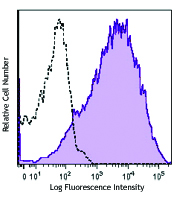
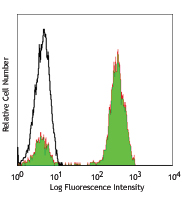
Compare Data Across All Formats
This data display is provided for general comparisons between formats.
Your actual data may vary due to variations in samples, target cells, instruments and their settings, staining conditions, and other factors.
If you need assistance with selecting the best format contact our expert technical support team.
-
Purified anti-human CD124 (IL-4Rα)
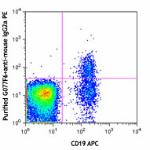
Human peripheral blood lymphocytes were stained with CD19 AP... 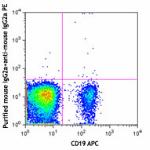
-
PE anti-human CD124 (IL-4Rα)
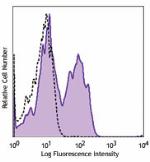
Human peripheral blood lymphocytes were stained with CD19 AP... -
APC anti-human CD124 (IL-4Rα)
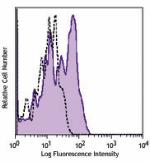
Human peripheral blood lymphocytes were stained with CD19 FI... -
PE/Cyanine7 anti-human CD124 (IL-4Rα)

Human peripheral blood lymphocytes were stained with CD19 AP... -
TotalSeq™-C0363 anti-human CD124 (IL-4Rα)
-
Brilliant Violet 421™ anti-human CD124 (IL-4Rα)

Human peripheral blood lymphocytes were stained with CD19 AP... -
PerCP/Cyanine5.5 anti-human CD124 (IL-4Rα)

Human peripheral blood lymphocytes were stained with CD19 AP... -
TotalSeq™-B0363 anti-human CD124 (IL-4Rα)
-
PE/Dazzle™594 anti-human CD124 (IL-4Rα)

Human peripheral blood lymphocytes were stained with anti-hu... -
TotalSeq™-A0363 anti-human CD124 (IL-4Rα)
 Login / Register
Login / Register 










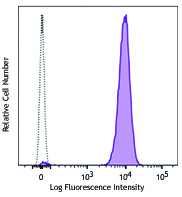
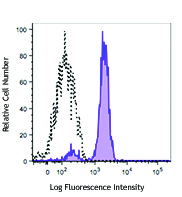



Follow Us